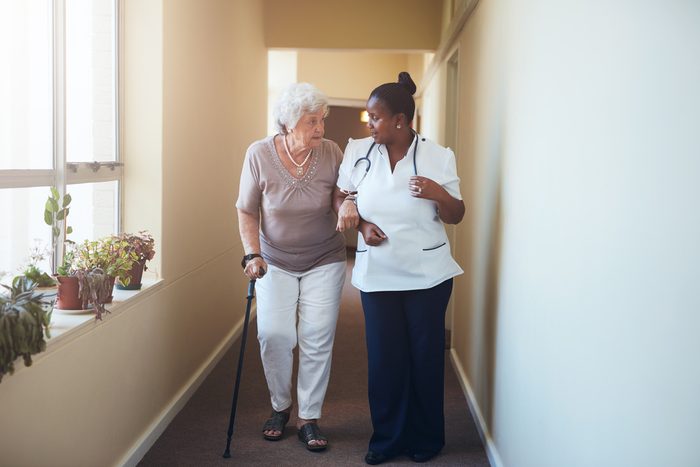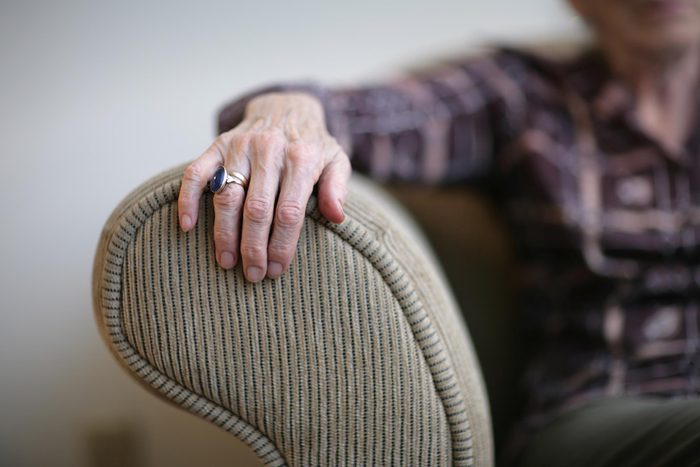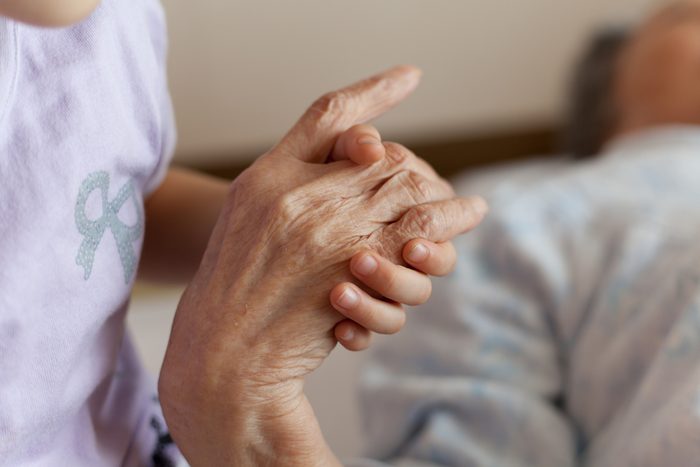
What no one tells you about Alzheimer’s disease
You probably know someone who has Alzheimer’s disease. Every 65 seconds, someone develops Alzheimer’s, according to the Fischer Center for Alzheimer’s Research Foundation. This means family and friends may have to assume a new role—the role of a caregiver for an aging relative. (Although early-onset Alzheimer’s can occur in people younger than age 65, according to the Alzheimer’s Association.)
There are rewards and challenges when you become a caregiver for someone with Alzheimer’s disease, including a risk of caregiver burnout. We asked experts what caregivers and other people should know about this memory-robbing condition.

Your loved one may do wildly inappropriate things
“Sometimes people say and do things that are out of character,” says Ruth Drew, director of information and support services at the Alzheimer’s Association. She recalls the time a woman—who had always been very proper—began taking off her clothes from the waist down. One of the residential care facilitators suspected that there was something going on and had her tested for a urinary tract infection—which turned out to be the problem. “You need to play detective and discover what is triggering the behavior,” says Drew. “The circle of life reverses itself and sometimes the child becomes the parent,” notes Gail Pearson, memory care unit manager at Jeffrey and Susan Brudnick Center for Living in Peabody, Massachusetts.

Loss of inhibitions
“It is not uncommon that my husband opens his zipper. He doesn’t do it to be sexual. He thinks it’s funny,” reports a family caregiver. “He also tries to kiss strangers because he truly believes everyone likes him.” These are the early signs of Alzheimer’s every adult should know.

Expect delusions and hallucinations
“Delusions can turn on a dime,” notes Pearson. Patients may say sexually inappropriate comments because they have no filter, she says. According to the Alzheimer’s Association, delusion tends to occur in the middle-to-late stages of Alzheimer’s.

Speech may disappear
Even though she had been a social worker for over two decades, Tanjulla Tyson-Wearren was surprised when her mother suddenly couldn’t speak. “It was an emotional roller coaster. I was not prepared to never hear her sing a song or say hi,” says Tyson-Wearren. “Even when they cannot speak, there are still ways to connect, “says Drew. Here are some ways to maintain an emotional connection with someone with Alzheimer’s.

They may forget how to shower
“Confusion becomes the central way of thinking,” notes Crystal Polizzotti, healthy aging program manager at Elder Services of the Merrimack Valley, in Lawrence, Massachusetts. Polizzotti notes that there are about 15 steps to taking a shower that we don’t even think about. But, a person with Alzheimer’s may find impossible to complete these steps. One of the caregivers told Polizzotti that the only way she could get her husband to shower was to go in first. “You have to get creative,” notes Polizzotti.

Alzheimer’s is deadly
It’s the sixth leading cause of death, Drew points out: “A lot of people still do not understand that Alzheimer’s cannot be prevented, slowed down, or cured.” The Alzheimer’s Association’s annual report notes that one in three seniors will die with Alzheimer’s or another form of dementia. Alzheimer’s kills more people than breast cancer and prostate cancer combined. It’s part of why research on Alzheimer’s drugs like Lecanemab are so important. Don’t miss the myths about Alzheimer’s disease you should stop believing.

16 Million Americans are unpaid Alzheimer’s caregivers
According to the latest annual report by the Alzheimer’s Association, unpaid caregivers—family members and friends—supplied an estimated 18.6 billion hours of care that can be valued at $244 billion. When Tyson-Wearren began caring for her mother, she transferred from a position of growth to one in which there was little hope for advancement. She was able to complete a Master’s program while working nights and today is a social work supervisor. “My current struggle is trying to regain financial value in the workplace,” she says.

Insurance may not cover Alzheimer’s care
A successful businessman told Drew that he planned for everything except his wife’s Alzheimer’s. She was physically strong, but couldn’t be safely left alone. Medicare won’t cover medical care for people with Alzheimer’s until they’re 65 or older—and long-term nursing home care is not covered. Medicaid may pay for medical care and long-term care if the patient meets medical and financial requirements, but eligibility and benefits vary from state to state. Veterans with Alzheimer’s may be eligible for medical and long-term care.

Physical feelings may fade, but emotions can remain
Caregiver Martha Oliver notes that her husband likes to change his outfit several times a day and often has no idea what season it is. “He wants to put on a jacket in the summer,” she says. Although he sometimes talks gibberish and has difficulty communicating, says Oliver, “he has deep feelings. He tells me a million times a day he loves me.” Check out the 16 things Alzheimer’s patients wish you knew.

Musical memories can be more resilient
Humming a tune may help an Alzheimer’s patient when they are in distress, notes Jeff Allen, the life enrichment coordinator at Fellowship Senior Living in Basking Ridge, New Jersey. “If a person with Alzheimer’s is yelling or agitated, you may be able to redirect them with music,” says Allen.

Alzheimer’s can bring families together
“There are many positive things that happen that take people by surprise,” notes Anne Weisbrod, the director of social services at Hebrew Home at Riverdale in Riverdale, New York. “People who have been angry and frustrated may become affectionate and demonstrative. It is great for both the resident and their family,” she says.

Loss of inhibitions can lead to new passions
Weisbrod says she sees this a lot: For example, she encouraged a man who never wanted to socialize to attend a music program; suddenly, he began singing show tunes from old musicals. “Residents who never picked up a paintbrush discover their inner Rembrandt,” she says. Residents who are non-verbal may find new ways to express themselves. Find out the habits that can increase your risk of dementia and Alzheimer’s.

Hospitals need your help
“When we get a patient with Alzheimer’s admitted to the hospital, it’s important that we know what things help keep that person calm and engaged,” explains Margaret Foley, director of care management, Emerson Hospital in Concord, Massachusetts. “Because they do not have the ability to reason in the same way we do, we need to enter into their reality and be present with them where they are at the hospital. It is very important for these patients to have loved ones often visit and stay with the patient to help keep them calm.”

You need to adjust your behavior
“Rather than trying to correct a patient’s behavior, you need to adjust yours,” notes Marina Kogan, RN, care coordination manager at Suburban Home Health Care in Boston. If a patient is looking for his mother who has passed away, says Kogan, don’t remind him that his mother passed away. Instead, redirect him by asking him to tell you about his mom, she suggests. “It is not about what is right or wrong, but making him feel comfortable at the moment,” says Kogan. This is the difference between dementia and Alzheimer’s.

There is still room for laughter
“I got a call from the Adult Day Center that my mother was in a time out because she got in a fight on the bus—she thought someone took her seat,” recalls Tyson-Wearren. Another time she ran around the neighborhood with her husband frantically searching for her mother. It turned out mom was on the back deck enjoying a glass of juice. “We always found some laughter in everything,” says Tyson-Wearren. (Next, find out the things neurologists do to help prevent Alzheimer’s disease.)
